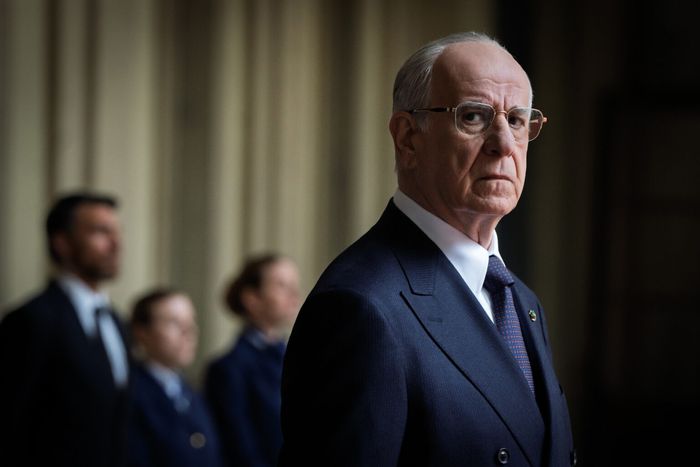
Despite his current reputation as a creator of aggressively aestheticized films, Paolo Sorrentino was once a director of uncommon subtlety. Understated early works such as One Man Up and the masterful Consequences of Love focus on people struggling with static lives and longing to be elsewhere. Later efforts don’t necessarily abandon these themes, but, especially in the wake of his Oscar-winning The Great Beauty, the director gained notoriety as a Felliniesque showman making lush, busy films in which the grotesque and the beautiful jut up against each other. And even as his work has become more personal over the past few years (his two most recent films, the autobiographical Hand of God and the highly metaphorical Parthenope, are odes to his hometown of Naples), Sorrentino hasn’t lost his fondness for the surreal, the garish, the epic, the scandalous, or the big colorful sequences pulsing with music and symbolism. Which makes his latest, La Grazia (Grace), the opening-night picture of the Venice Film Festival, such a surprise: Its reflectiveness and restraint feel like a return to those delicate earlier works, to the Sorrentino of yore. Only in this case, the repressed figure at the movie’s center also happens to be the president of Italy.
Sorrentino has told stories about Italian leaders before — scathing ones, like Il Divo and Loro, loosely historical condemnations of prime ministers Giulio Andreotti and Silvio Berlusconi. This time, the leader, President Mariano De Santis (played by the great Toni Servillo, Sorrentino’s regular collaborator for many years), is entirely fictional, and he’s miles away from the corrupt and driven real-world monsters of those previous films. A moderate and careful jurist who we’re told helped repair the country after a period of turmoil, Mariano is racked with indecision in his final months in office. A bill legalizing euthanasia sits before him, researched and endorsed by his daughter, Dorotea (Anna Ferzetti). He has also been requested to pardon two people imprisoned for murder — one, a woman who killed an abusive husband; the other, a husband who killed a wife with late-stage Alzheimer’s. He doesn’t know how to proceed because his life has always been guided by facts and these are fundamentally moral choices. “You attach too much importance to the truth,” says one of his oldest friends, Coco Valori (Milvia Marigliano in a scene-stealing turn). “It’s a professional quirk among judges,” he responds.
For all that, La Grazia isn’t really about politics or even morality. Mariano spends his days within the cocoon of his office, where the diligent and caring Dorotea watches over his meals and his security guards attend to anything else he may need. He has very little sense





